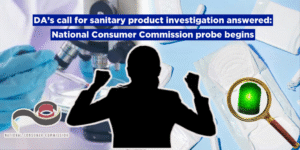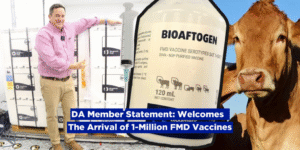The Democratic Alliance welcomes and applauds the efforts of SANParks, the Endangered Wildlife Trust (EWT), and veterinary and rehabilitation partners who responded to a devastating poisoning incident in the Kruger National Park.
In one of the largest mass deaths on record, responders found 123 vultures already dead with scores of others suffering symptoms of poisoning. Out of 89 vultures found alive, 84 have survived thanks to the swift and coordinated response of an exceptional and vast rescue team.
This remarkable 96% survival rate is not only a testament to world-class fieldwork and veterinary care, but also to the importance of strategic partnerships in conservation. The use of SANParks helicopters, mobile vulture ambulances, sophisticated detection technology, and 24-hour veterinary support saved dozens of endangered and critically endangered birds from certain death. This response was unprecedented in its extent and coordination.
However, while we celebrate this achievement, we must not lose sight of the gravity of the situation. The poisoning of an elephant carcass with highly toxic agrochemicals — deliberately done to target vultures by poachers seeking to avoid detection — resulted in the death of 123 birds, including endangered White-backed, Cape, and Lappet-faced Vultures. This is a brutal act of environmental sabotage that threatens the very future of these species which perform vital roles in our ecosystems.
The use of poisons in poaching is a growing threat across South Africa. It demands urgent and coordinated action. In response, the DA will:
- Submit parliamentary questions to the Minister of Forestry, Fisheries and the Environment on current counter-poisoning strategies and toxic chemical controls;
- Advocate for increased funding and support for SANParks’ aerial surveillance and wildlife crime response units;
- Push for stricter regulation and traceability of agricultural poisons commonly used in wildlife crimes;
- Engage with civil society and scientific stakeholders to develop policy solutions aimed at deterring and disrupting poison-based poaching networks.
The DA extends its deepest gratitude to every ranger, vet, pilot, and conservationist who responded with such speed, skill and compassion. Their heroism turned what could have been an even greater tragedy into a story of hope and resilience.
The DA stands firm against poaching and other wildlife crimes and recommits to fighting for justice for our precious environment.




